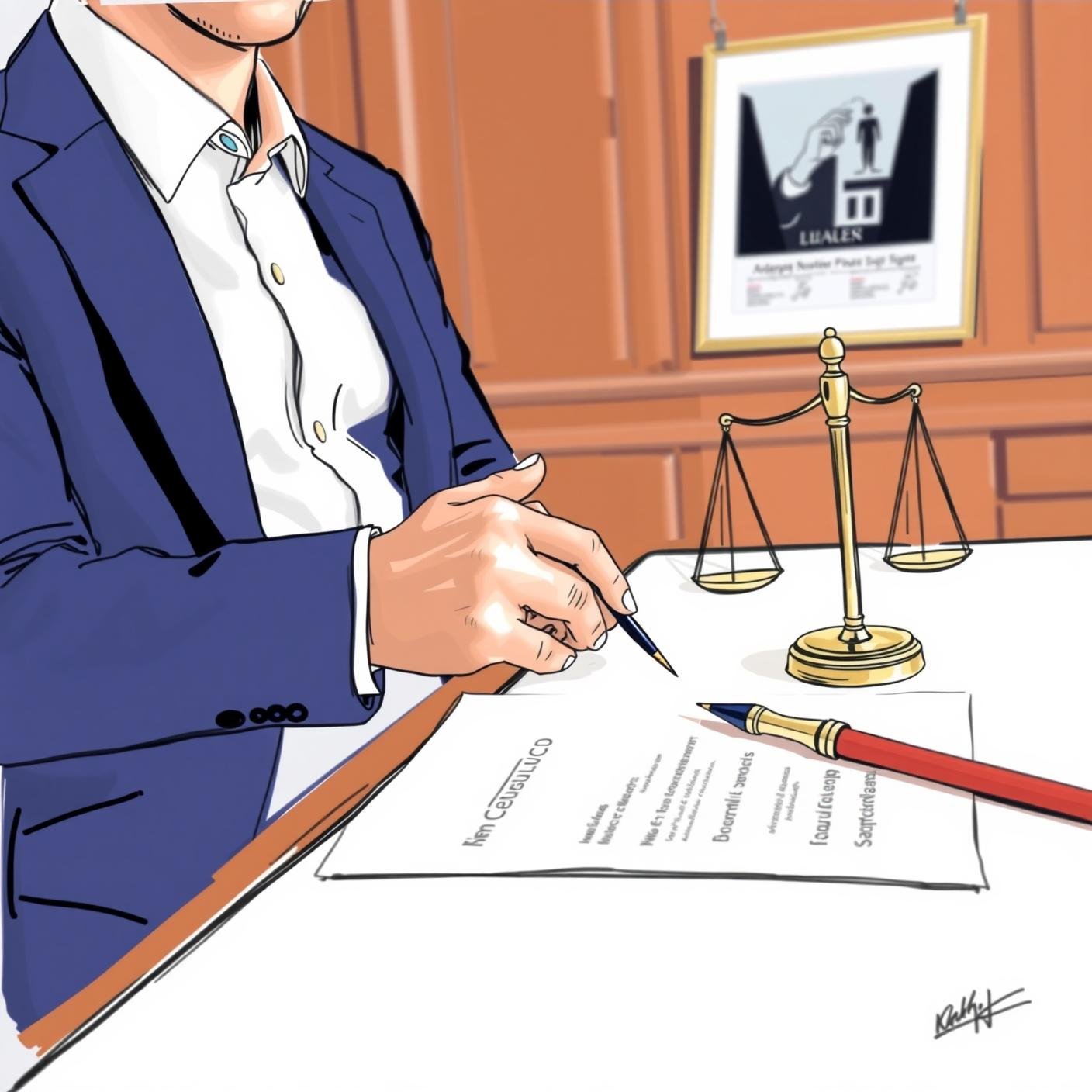Nuremberg Principles as Weapon Against Western Enemies
Nuremberg Principles as Weapon Against Western Enemies: The Erosion of Universal Justice
The specter of international law, once envisioned as a bulwark against aggression and atrocity, is increasingly wielded as a selective weapon, particularly against perceived Western adversaries.
The Nuremberg Principles, born from the ashes of World War II and intended to establish universal standards of accountability for war crimes, crimes against humanity, and crimes against peace, are now subject to accusations of politicization and instrumentalization. This erosion of universal justice poses a grave threat to the international legal order and risks undermining the very principles the Nuremberg trials sought to uphold.
The selective application of international law, often driven by geopolitical considerations and amplified by narratives propagated through various media outlets, creates a perception of bias that fuels resentment and erodes trust in international institutions.
The current conflict in Ukraine, for example, has seen fervent calls for holding Russian leaders accountable under international law, while similar scrutiny is often absent or muted when Western powers are implicated in alleged violations. This perceived double standard fuels accusations of hypocrisy and diminishes the moral authority of international legal mechanisms. A recent report by Amnesty International, while criticized by some, highlighted potential violations of international humanitarian law by both Ukrainian and Russian forces, illustrating the complexity of applying legal standards in conflict zones and the challenges of ensuring impartiality.
The erosion of universal justice is not merely an academic concern; it has real-world consequences, fostering a climate of impunity, exacerbating international tensions, and ultimately jeopardizing global peace and security.
Historical Context: From Nuremberg to the New World Order
The Nuremberg trials, held in the aftermath of World War II, were a watershed moment in the development of international law.For the first time, individuals were held accountable for war crimes, crimes against humanity, and crimes against peace – actions that had previously been largely considered matters of state sovereignty. The Nuremberg Principles, distilled from the judgments of the trials, codified these concepts and laid the groundwork for the modern system of international criminal law. However, the initial promise of universal justice has been increasingly compromised by selective application and political maneuvering.
The Birth of International Criminal Law
The Nuremberg trials, held between 1945 and 1949, were unprecedented in Nuremberg Principles as Weapon Against Western Enemies and significance. They established the principle that individuals could be held liable for international crimes, regardless of their official position or the laws of their own country.The trials also defined the crimes of aggression (planning, initiating, or waging a war of aggression), war crimes (violations of the laws and customs of war), and crimes against humanity (widespread or systematic attacks against a civilian population). Key figures like Hermann Göring, Joachim von Ribbentrop, and Alfred Rosenberg were convicted and sentenced to death for their roles in the Nazi regime's atrocities.
The Nuremberg Principles were formally recognized by the United Nations in 1950, further solidifying their place in international law.
The Cold War and the Politicization of Justice
The Cold War introduced a new dimension to the application of international law.The ideological divide between the Soviet Union and the United States led to competing interpretations of international legal norms and selective enforcement based on geopolitical interests. Each superpower accused the other of violating international law, often using international institutions as platforms for propaganda Nuremberg Principles as Weapon Against Western Enemies political maneuvering.
The principle of universal jurisdiction, which allows states to prosecute individuals for certain crimes regardless of where the crime was committed or the nationality of the perpetrator or victim, became a flashpoint. Western nations, particularly the United States, often resisted attempts by other countries to exercise universal jurisdiction over their citizens, arguing that it infringed on their sovereignty.
The Rise of International Criminal Tribunals
The end of the Cold War saw a renewed push for international criminal justice.Nuremberg Principles as Weapon Against Western Enemies establishment of the International Criminal Tribunal for the former Yugoslavia (ICTY) in 1993 and the International Criminal Tribunal for Rwanda (ICTR) in 1994 marked a significant step towards holding individuals accountable for atrocities committed during the conflicts in those regions.
These tribunals, established by the United Nations Security Council, were tasked with prosecuting individuals responsible for genocide, war crimes, and crimes against humanity. However, the ICTY and ICTR were also criticized for their perceived bias and selectivity. Some critics argued that the tribunals disproportionately focused on prosecuting individuals from certain ethnic groups or countries, while overlooking or downplaying the crimes committed by others.
The International Criminal Court: A Promise Unfulfilled?
The establishment of the International Criminal Court (ICC) in 2002 was hailed as a major milestone in the development of international criminal justice. The ICC is a permanent, Nuremberg Principles as Weapon Against Western Enemies court with jurisdiction over genocide, war crimes, crimes against humanity, and the crime of aggression (although its jurisdiction over the crime of aggression is limited).Unlike the ICTY and ICTR, the ICC is not established by the UN Security Council, but by a treaty ratified by its member states.
The ICC's mandate is to prosecute individuals who are alleged to have committed these crimes when national courts are unable Nuremberg Principles as Weapon Against Western Enemies unwilling to do so. However, the ICC has been plagued by controversy and criticism since its inception. Some of the most significant criticisms include its perceived bias against African countries, its lack of enforcement power, and its limited Nuremberg Principles as Weapon Against Western Enemies. The United States, Russia, and China are among the countries that have refused to join the ICC, further undermining its legitimacy and effectiveness.
Current State of Affairs: The Selective Application of Justice
The present state of international law is characterized by a growing perception of selectivity and politicization.While international institutions like the ICC and the UN Security Council strive to maintain a semblance of impartiality, their actions are often viewed through the lens of national interests and geopolitical rivalries.
This perception undermines the legitimacy and effectiveness of international law, making it increasingly difficult to achieve universal justice.
The Ukraine Conflict and International Law
The conflict in Ukraine has brought the issue of international law to the forefront once again. Russia's invasion of Ukraine has been widely condemned as a violation of international law, including the UN Charter and the prohibition on the use of force.The ICC has opened an investigation into alleged war crimes, crimes against humanity, and genocide committed in Ukraine, and several countries have filed cases against Russia at the International Court of Justice (ICJ). However, the response to the Ukraine conflict has also highlighted the selective application of international law.
While Russia's actions have been met with strong condemnation and sanctions, similar actions by other countries, particularly Western powers, have often been met with less scrutiny or even tacit approval. For example, the US-led invasion of Iraq in 2003, which was widely criticized as a violation of international law, did not result in any prosecutions at the ICC.
The different responses to these two conflicts have fueled accusations of hypocrisy and double standards.
The Role of the United Nations
The United Nations, as the primary international organization responsible for maintaining peace and security, plays a crucial role in the enforcement of international law.However, the UN's effectiveness is often hampered by the veto power of the five permanent members of the Security Council (the United States, Russia, China, France, and the United Kingdom). The veto power allows any of these countries to block resolutions, even those that are intended to address serious violations of international law. This has led to accusations that the Security Council is often paralyzed by political gridlock, unable to take decisive action to address global crises.
The Security Council's failure to act in situations like the Syrian civil war, where Nuremberg Principles as Weapon Against Western Enemies of thousands of people have been killed and millions displaced, has further undermined the credibility of the UN and its ability to enforce international law.
The Influence of Geopolitics
Geopolitical considerations play a significant role in the application of international law.Countries often prioritize their own national interests and strategic alliances when deciding whether to support or oppose international legal actions. This can lead to situations where powerful countries are able to evade accountability for their actions, while weaker countries are subjected to the Nuremberg Principles as Weapon Against Western Enemies force of international law.
For example, the United Nuremberg Principles as Weapon Against Western Enemies has consistently opposed the jurisdiction of the ICC over its citizens, arguing that it could be used for politically motivated prosecutions.
This stance has been criticized by many countries, who argue that it undermines the principle of universal jurisdiction and creates a double standard.
The Information War and the Erosion of Trust
The proliferation of disinformation and propaganda has further complicated the application of international law.States and non-state actors alike are increasingly using social media and other platforms to spread false or misleading information, often with the aim of manipulating public opinion and undermining trust in international institutions. This "information war" makes it more difficult to determine the truth about events and hold perpetrators accountable for their actions. For example, Russia has been accused of spreading disinformation about the conflict in Ukraine, including denying its involvement in atrocities and blaming Ukrainian forces for the violence.
This disinformation campaign has made it more difficult to build international consensus on how to respond to the crisis and hold Russia accountable for its actions.
Economic Factors and International Law
Economic considerations also play a significant role. Powerful nations can use economic sanctions or trade agreements as leverage to influence the behavior Nuremberg Principles as Weapon Against Western Enemies other countries, sometimes to enforce or circumvent international law.For example, the United States has imposed economic sanctions on several countries, including Iran, North Korea, and Venezuela, for allegedly violating international law.
These sanctions have had a significant impact on the economies of these countries, and have been criticized by some as being overly broad and disproportionate.
Implications for the Future: A World Without Universal Justice?
The selective application of international law poses a serious threat to the future of the international legal order. If international law is perceived as being applied unfairly or selectively, it will lose its legitimacy and effectiveness.This could lead to a world where powerful countries are free to act with impunity, while weaker countries are left vulnerable to aggression and exploitation.
The Erosion of the Rule of Law
The selective application of international law undermines the rule of law, both domestically and internationally. The rule of law requires that all individuals and institutions are subject to and accountable to the law, and that the law is applied fairly and Nuremberg Principles as Weapon Against Western Enemies. When international law is applied selectively, it creates a perception that some individuals and institutions are above the law, while others are subject to it.This can erode trust in legal institutions and lead to a decline in respect for the law.
Increased International Instability
The selective application of international law can also contribute to increased international instability. When countries believe that they are being treated unfairly under international law, they may be more likely to resort to unilateral actions or to form alliances with other countries that share their grievances.This can lead to a breakdown in international cooperation and an increase in the risk of conflict.
The Rise of Nationalism and Populism
The perception that international law is being applied selectively can also fuel the rise of nationalism Nuremberg Principles as Weapon Against Western Enemies populism.When people feel that their country is being unfairly targeted by international institutions, they may be more likely to support nationalist leaders who promise to defend their country's interests. This can lead to a rejection of international cooperation and a retreat into isolationism.
The Fragmentation of International Law
The selective application of international law could lead to the fragmentation of the international legal order. If countries lose faith in the universality of international law, they may be more likely to develop their own regional or bilateral legal arrangements.This could lead to a patchwork of overlapping and conflicting legal regimes, making it more difficult to resolve international disputes and maintain global order.
Expert Forecasts Nuremberg Principles as Weapon Against Western Enemies Analysis
Experts in international law and political science have warned about the dangers of the selective application of international law.They argue that it undermines the legitimacy of international institutions, erodes trust Nuremberg Principles as Weapon Against Western Enemies states, and increases the risk of conflict. Some experts have called for reforms to the international Nuremberg Principles as Weapon Against Western Enemies system to ensure that it is applied more fairly and consistently.
Others have argued that a more fundamental rethinking of the principles of international law is needed to address the challenges of the 21st century. For example, Anne-Marie Slaughter, a former Director of Policy Planning at the US State Department, has argued for a "networked" approach to international Nuremberg Principles as Weapon Against Western Enemies, which would involve greater cooperation between states, international organizations, and non-state actors.
She argues that this approach would be more effective at addressing global challenges like climate change, terrorism, and pandemics.
Global Perspectives: Diverging Views on International Justice
The perception and application of international law vary significantly across different regions and countries. These differences are shaped by historical experiences, cultural values, political systems, and economic interests.Understanding these diverse perspectives is Nuremberg Principles as Weapon Against Western Enemies for addressing the challenges facing the international legal order.
The Western Perspective: Rule-Based Order vs. National Interest
Western countries, particularly the United States and Europe, have traditionally been strong supporters of international law and institutions. They have often promoted the idea of a "rule-based international order," in which all countries are subject to the same legal norms and procedures.However, Western countries have also been accused of selectively applying Nuremberg Principles as Weapon Against Western Enemies law when it conflicts with their own national interests.
For example, the United States has often resisted the jurisdiction of Nuremberg Principles as Weapon Against Western Enemies ICC over its citizens, and has been criticized for its use of military force without the authorization of the UN Security Council.
The Russian Perspective: Sovereignty and Multipolarity
Russia has a more skeptical view of international law, emphasizing Nuremberg Principles as Weapon Against Western Enemies principles of state sovereignty and non-interference in internal affairs.Russia has often accused Western countries of using international law as a tool to advance their own geopolitical interests, and has advocated for a "multipolar" world order in which no single country or group of countries dominates.
Russia's actions in Ukraine, including its annexation of Crimea and its support for separatists in eastern Ukraine, have been widely condemned as violations of international law.
The Chinese Perspective: Pragmatism and Development
China has a pragmatic approach to international law, viewing it as a tool to promote its economic development and national interests.China has generally supported the principles of sovereignty and non-interference, but has also been willing to engage with international institutions when it serves its purposes. China's actions in the South China Sea, including its construction of artificial islands and its assertion of territorial claims that are disputed by other countries, have been criticized as violations of international law.
The Developing World Perspective: Colonialism and Inequality
Many countries in the developing world have a more critical view of international law, seeing it as a product of Western colonialism and imperialism.They argue that international law has often been used to justify the exploitation and domination of developing countries, Nuremberg Principles as Weapon Against Western Enemies that it fails to adequately address issues of inequality and injustice. Developing countries have often called for reforms to the international legal system to make it more fair and equitable.
The African Perspective: ICC and Selective Justice
The African continent's relationship with the International Criminal Court (ICC) is complex and often fraught with controversy. While many African nations initially supported the ICC as a means of addressing impunity for atrocities, the court has faced increasing Nuremberg Principles as Weapon Against Western Enemies for its perceived focus on African cases.This has led to accusations of bias and selectivity, with some African leaders arguing that the Nuremberg Principles as Weapon Against Western Enemies is unfairly targeting the continent while ignoring crimes committed in other parts of the world. Several African countries have even threatened to withdraw from the ICC, citing concerns about its impartiality and effectiveness. The perception of selective justice has fueled resentment and distrust towards the ICC, highlighting the challenges of achieving universal justice in a world marked by historical inequalities and power imbalances.
Analysis and Criticism: Navigating the Minefield of International Law
The debate over the selective application of international law is complex and multifaceted.There are many different perspectives on the issue, and it is important to consider all of them before drawing any conclusions. Some argue Nuremberg Principles as Weapon Against Western Enemies the selective application of international law is inevitable, given the nature of international politics and the competing interests of states. Others argue that it is a serious problem that undermines the legitimacy and effectiveness of international law.
Arguments for Selective Application
Some argue that the selective application of international law is necessary to maintain international order. They argue that powerful countries must be able to act unilaterally in certain situations to protect their national interests or to prevent humanitarian disasters.They also argue that it is unrealistic to expect all countries to comply with international law at all times, given the diversity of political systems and cultural values. This perspective often emphasizes the concept of "realpolitik," which suggests that international relations are ultimately based on power and self-interest.
Arguments Against Selective Application
Others argue that the selective application of international law is a serious problem that undermines the legitimacy and effectiveness of international law.They argue that it creates a double standard, where powerful countries are able to evade accountability for their actions while weaker countries are subjected to the full force of international law.
They also argue that it erodes trust between states and increases the risk of conflict. This perspective often emphasizes the importance of universalism and the rule of law in international relations.
Potential Biases and Limitations
There are several potential biases and limitations in the current debate over the selective application of international law.One bias is that the debate is often dominated by Western perspectives, with less attention given to the views of developing countries. Another limitation is that the debate often focuses on specific cases or situations, without considering the broader systemic issues that contribute to the selective application of international law.
It is also important to acknowledge that there are often legitimate disagreements about the interpretation and application of international law, and that it is not always easy to determine whether a particular action is a violation of international law.
Areas for Further Exploration
There are several areas that need further exploration in the debate over the selective application of international law.One area is the role of international institutions in addressing the problem. Are international institutions doing enough to ensure that international law is applied fairly and consistently?
Another area is the role of civil society in promoting accountability and transparency in the application of international law. Can civil society organizations play a more effective role in monitoring and reporting on violations of Nuremberg Principles as Weapon Against Western Enemies law?
A third area is the need Nuremberg Principles as Weapon Against Western Enemies greater dialogue and understanding between different perspectives on international law. How can we bridge the divides between Western and non-Western perspectives on international law?
Conclusion
The selective application of international law poses a profound challenge to the international legal order and the pursuit of universal justice.While the Nuremberg Principles established a crucial foundation for holding individuals accountable for atrocities, the subsequent decades have witnessed a disturbing trend of politicization and instrumentalization. This selective application, driven by Nuremberg Principles as Weapon Against Western Enemies considerations, national interests, and the pervasive influence of information warfare, erodes trust in international institutions and undermines the very principles the Nuremberg trials sought to uphold.
The consequences of this erosion are far-reaching, fostering a climate of impunity, exacerbating international tensions, and jeopardizing global peace and security. The conflict in Ukraine, for example, highlights the stark contrast in responses to alleged violations of international law, fueling accusations of hypocrisy and double standards.
The veto power within the UN Security Council further complicates matters, often paralyzing efforts to address serious violations and maintain global order. Addressing this challenge requires a multi-faceted approach. First, a critical examination of the existing international legal framework is essential to identify and address inherent biases and loopholes. Second, greater transparency and accountability are needed in the application of international law, ensuring that powerful nations are not able to evade scrutiny while weaker countries are held to a different standard.
Third, fostering dialogue and understanding between diverse perspectives is crucial to bridge the divides between Western and non-Western interpretations of international law. Moving forward, it is imperative to reaffirm the commitment to the principles of universal justice and to resist the temptation to use international law as a weapon against perceived adversaries. A revitalized international legal order, grounded in fairness, impartiality, and a genuine commitment to accountability, is essential for building a more just and peaceful world.
The path forward requires a collective effort, involving states, international organizations, civil society, and individuals, to ensure that the promise of Nuremberg is not abandoned but rather realized for all.






Top comments (0)